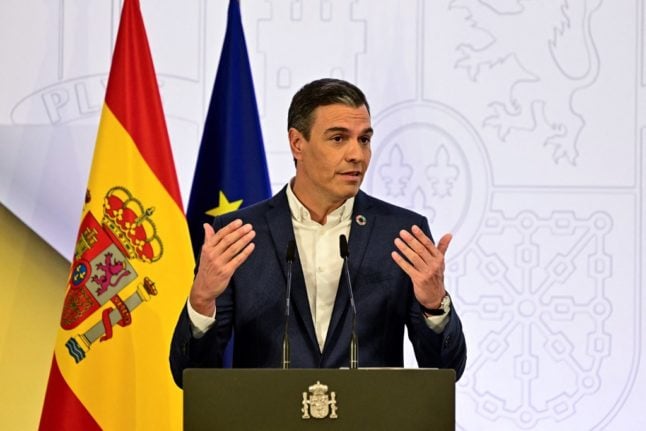In a move some might be surprised was even necessary given Spain’s famously hot climate, Sánchez urged office workers to follow his own tie-free lead.
“As you can see, I’m not wearing a tie,” said Sánchez, smiling broadly, pointing to his open neck shirt during a news conference in Madrid on Friday.
Click on the play button below to watch the video:
Feeling a little more comfortable would save energy if it resulted in less air-conditioning being used, he said.
“This means that we can all save energy,” he argued, adding that he had asked all ministers and public officials to stop wearing ties and hoped the private sector would also follow suit.
The Spanish government is on Monday set to adopt a set of “urgent” energy-saving measures, Sánchez said, “in line with what other European countries do”, without elaborating.
Following Moscow’s invasion of Ukraine, the European Commission released in mid-May a €210-billion plan aiming to boost renewable energies and reduce energy consumption to put an end to dependency on Russian gas.
In response, Spain has adopted several measures including encouraging remote work and the limiting of air conditioning in offices in summer and radiators in winter.
Several German cities said this week they would step up efforts to save energy, with Hanover in the north announcing plans to only offer cold showers at public pools and sports centres and Berlin switching off spotlights illuminating its historic monuments.



 Please whitelist us to continue reading.
Please whitelist us to continue reading.
Member comments